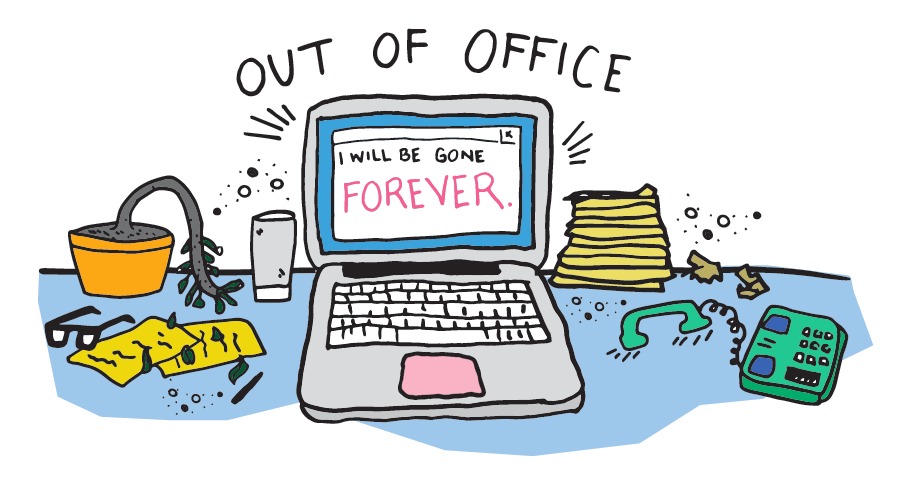Company culture isn’t a fixed thing—it’s a constant work in progress. We have a few big decisions that we want to get right. How should we give employee feedback? What are our company values? How should we structure our organization? We know that decisions around these big questions will have a huge impact on our culture.  But there are many smaller decisions that everyone on the team makes every day. They’re easy to overlook when you’re busy putting out bigger fires, but they’re worth paying attention to. Compromise on those decisions, and your company culture will incrementally evolve in the wrong direction until it’s something unrecognizable. Ultimately, it’s these tiny pivots that shape company culture over time. At Wistia, with each decision, we try to ask ourselves a basic question to guide the evolution of our culture: “Will I be more or less likely to want to work here after this decision?” ### Startup founder: question yourself As a startup founder, you want to give your company your all. It’s easy to take the ups and downs personally, and your own self-esteem is often tied to the company. Ironically, it’s possible to put so much passion into your company that you destroy your own culture. As the founder of a company, you’re invested in its success in a way that your employees simply aren’t. That type of investment and ownership is a huge motivator that can overshadow all of the other reasons that you started the business. In the name of “winning,” many founders push too hard. They undermine their team’s ability to do great work by focusing on the short term, chasing trends, and imitating competitors. Passion, when left unchecked, can actually lead to poor decisions that end up compromising work culture. Before you know it, you can create a place where your team doesn’t want to work. And chances are, you won’t want to work there either.
But there are many smaller decisions that everyone on the team makes every day. They’re easy to overlook when you’re busy putting out bigger fires, but they’re worth paying attention to. Compromise on those decisions, and your company culture will incrementally evolve in the wrong direction until it’s something unrecognizable. Ultimately, it’s these tiny pivots that shape company culture over time. At Wistia, with each decision, we try to ask ourselves a basic question to guide the evolution of our culture: “Will I be more or less likely to want to work here after this decision?” ### Startup founder: question yourself As a startup founder, you want to give your company your all. It’s easy to take the ups and downs personally, and your own self-esteem is often tied to the company. Ironically, it’s possible to put so much passion into your company that you destroy your own culture. As the founder of a company, you’re invested in its success in a way that your employees simply aren’t. That type of investment and ownership is a huge motivator that can overshadow all of the other reasons that you started the business. In the name of “winning,” many founders push too hard. They undermine their team’s ability to do great work by focusing on the short term, chasing trends, and imitating competitors. Passion, when left unchecked, can actually lead to poor decisions that end up compromising work culture. Before you know it, you can create a place where your team doesn’t want to work. And chances are, you won’t want to work there either.  #### How we started As founders, my co-founder Brendan and I were green, so we didn’t understand how to manage and lead. Our decisions and behaviors were dictated by preconceived notions of what it meant to be in charge—based off of bosses we saw on TV and in films. - Telling people what to do? Sounds like a boss. - Closed-door meetings and secret office chatter? Just part of doing business. - Having an answer for everything? Check. In our early days, we didn’t treat some of our employees as well as we could have, and we waited too long to solve ongoing problems. As these issues began to arise more frequently, we started to ask ourselves: “If this weren’t our company, would we actually want to work here?”
#### How we started As founders, my co-founder Brendan and I were green, so we didn’t understand how to manage and lead. Our decisions and behaviors were dictated by preconceived notions of what it meant to be in charge—based off of bosses we saw on TV and in films. - Telling people what to do? Sounds like a boss. - Closed-door meetings and secret office chatter? Just part of doing business. - Having an answer for everything? Check. In our early days, we didn’t treat some of our employees as well as we could have, and we waited too long to solve ongoing problems. As these issues began to arise more frequently, we started to ask ourselves: “If this weren’t our company, would we actually want to work here?”
“If this weren’t our company, would we actually want to work here?”
It wasn’t until we took a step back and looked at our company from a different perspective that we decided that we had to change. Through this lens, decisions became easier to make. - Do we want to work for a company where decision making is hoarded instead of distributed across the team? Nope. - Does executing someone else’s marching orders sound more attractive than creating your own work schedule? Seems like an easy decision to me. We realized that we owned the company culture. Not just because we owned the company, but also because we had to live and work with what we helped to create. When we started paying attention to these seemingly small day-to-day decisions, we felt empowered to build our own, distinct culture based on what we thought an enjoyable work environment looked like. #### Always come back to “why” We’ve been working on Wistia for nearly 10 years. People in the startup world launch 5 companies in the time we’ve been building one. Through our years of ups and downs, we’ve learned that you often circle back to the “why” of your work—especially if you’re a company founder. You ask yourself: “Of all the places in the world I could be working, why do I want to work at this company?” If you haven’t created a culture that you want to work in, you’ll quit. But if you have, and you’re a little bit lucky, you’ll end up with a job you wouldn’t sell or trade. ### Question everything As your company grows, your culture isn’t about the founders. It’s not about the CEO. And it’s not about the early team. It’s about everybody questioning their own individual decisions, and how those decisions shape the environment of the people around them. When everyone asks themselves how their actions affect the company culture, you create a positive feedback loop.

Your teammates’ individual values become the values of the company, and over time, you foster a community of people that’s excited to arrive at work each day. #### Fun work Fundamentally, we all hate doing work that we don’t enjoy. We don’t bring our best effort and do our best work when we don’t care about it. That’s why one of our company values is Fun Work. It’s our belief that if you can find a way to make the actual doing of the work more fun, then you’ll be able to do it for longer, and you’ll end up doing a better job. If we aim for Fun Work, then we’re actively putting ourselves in a great position to build a company that lasts. ### Impressive growth comes from impressive culture Fostering a strong company culture is incredibly hard, because it’s a matter of constant vigilance and daily habit—not a one-off fix. By putting your culture first, you’ll make an enormous positive impact on your company’s likelihood of success. Look at the companies in your space that are truly excelling—in terms of both the balance sheet and their employees’ well-being. Behind their accomplishments, you’ll find a strong company culture. So go out and build the company you want to work for. One decision at a time.

from Wistia Blog
http://ift.tt/1NBju3I via
video company
from Tumblr http://ift.tt/1PMgtSK
But there are many smaller decisions that everyone on the team makes every day. They’re easy to overlook when you’re busy putting out bigger fires, but they’re worth paying attention to. Compromise on those decisions, and your company culture will incrementally evolve in the wrong direction until it’s something unrecognizable. Ultimately, it’s these tiny pivots that shape company culture over time. At Wistia, with each decision, we try to ask ourselves a basic question to guide the evolution of our culture: “Will I be more or less likely to want to work here after this decision?” ### Startup founder: question yourself As a startup founder, you want to give your company your all. It’s easy to take the ups and downs personally, and your own self-esteem is often tied to the company. Ironically, it’s possible to put so much passion into your company that you destroy your own culture. As the founder of a company, you’re invested in its success in a way that your employees simply aren’t. That type of investment and ownership is a huge motivator that can overshadow all of the other reasons that you started the business. In the name of “winning,” many founders push too hard. They undermine their team’s ability to do great work by focusing on the short term, chasing trends, and imitating competitors. Passion, when left unchecked, can actually lead to poor decisions that end up compromising work culture. Before you know it, you can create a place where your team doesn’t want to work. And chances are, you won’t want to work there either.
#### How we started As founders, my co-founder Brendan and I were green, so we didn’t understand how to manage and lead. Our decisions and behaviors were dictated by preconceived notions of what it meant to be in charge—based off of bosses we saw on TV and in films. - Telling people what to do? Sounds like a boss. - Closed-door meetings and secret office chatter? Just part of doing business. - Having an answer for everything? Check. In our early days, we didn’t treat some of our employees as well as we could have, and we waited too long to solve ongoing problems. As these issues began to arise more frequently, we started to ask ourselves: “If this weren’t our company, would we actually want to work here?”
No comments:
Post a Comment